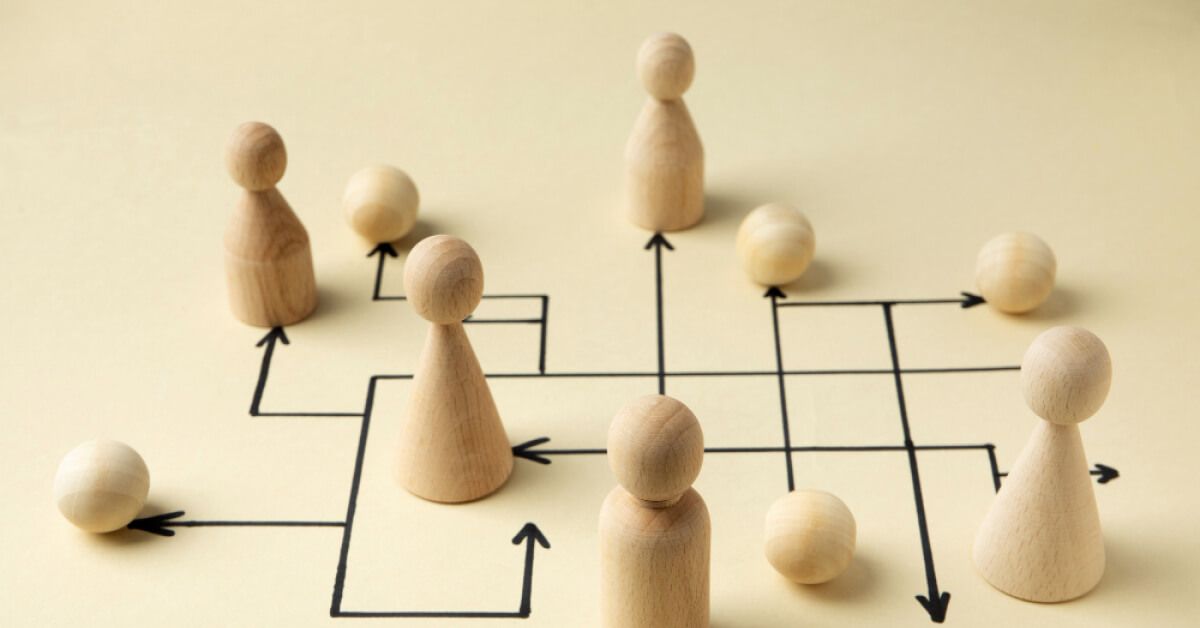35+ Employee awards to recognize greatness in the workplace

Think about a school sports day. Everyone’s on the field, cheering, racing, giving it their all. But what really lights up faces? It’s the moment when the announcer calls out names for the medals—gold, silver, bronze.
Even the quirky titles like "Best Team Spirit" or "Most Improved" get the loudest applause. Because let’s be honest, recognition feels amazing. It validates the effort, the late nights, the quiet perseverance that often goes unnoticed.
Workplaces aren’t much different. Behind every project deadline and client win, there are silent champions—problem solvers, morale boosters, innovators. Awards are more than just shiny plaques or certificates; they’re signals that say, we see you, we appreciate you, and we celebrate you.
So, if you're wondering how to boost morale and give credit where it’s due, this list of 35+ employee awards will help you spotlight greatness in every corner of your workplace.
What are employee awards?

Employee awards are structured ways organizations recognize and appreciate individual or team contributions in the workplace. These awards can range from formal titles like Employee of the Month to playful, culture-driven ones like Email Ninja or Meeting Magician. The goal? To celebrate exceptional contributions, achievements, behaviors, and milestones that reflect a company’s values, goals, and everyday wins.
Unlike one-off compliments or casual thank-yous, employee awards are part of a broader strategy to build a culture of recognition. They spotlight people who go the extra mile, show up consistently, innovate under pressure, or even make work more enjoyable for everyone else.
These awards can be performance-based, leadership skills-focused values-driven, role-specific, or even peer-nominated, depending on how a company sets up its recognition framework.
Whether it’s a sleek trophy, a gift card, or a funny desk sign, the form of the award isn’t what matters most—it’s the intent behind it. A well-thought-out employee rewards system sends a clear message: We see your effort, and it counts. It motivates others, boosts morale, and often leads to a ripple effect of positivity within teams.
Importance of employee awards

Recognition is more than a workplace perk—it’s fuel for engagement and trust. When people feel seen and celebrated through frequent recognition , their commitment deepens. Thoughtful employee awards do more than decorate desks—they shape the culture. Here's why investing in recognition is worth every bit of effort.
Boosts morale and motivation
Receiving an award reminds employees that their work genuinely matters. It’s that extra emotional nudge that turns a long week into a rewarding one. Morale naturally rises when employees feel valued and appreciation becomes visible. And with higher morale comes better performance across the board.
Reinforces positive workplace behaviors
Awards spotlight the kind of actions and attitudes the company values most. Instead of just talking about culture, recognition shows it in action. It builds a visible connection between effort and appreciation. That clarity drives more of the right behaviors, including customer satisfaction, over time.
Increases employee retention and loyalty
People stay where they feel valued and acknowledged. Awards reduce the chance of employees feeling overlooked or replaceable. A consistent recognition system in the same organization keeps top talent engaged. It also builds emotional ties that a salary bump alone can’t create.
Shapes and strengthens company culture
Each award reflects a piece of the company's DNA—whether it’s collaboration, creativity, or accountability. Recognition becomes a vehicle for reinforcing those values in a memorable way. Over time, these moments of appreciation, recognizing those who deserve appreciation, stack up. The result? A culture people want to be part of.
Encourages healthy and inclusive competition
When recognition is done right, it energizes teams without creating friction. Awards for employees with outstanding performance can spark ambition while keeping things respectful and collaborative. Employees become inspired by peers who are recognized. It creates a shared drive to bring their best selves to work.
Deepens trust between managers and employees
Being recognized by a manager builds more than confidence—it creates connection. It shows that leaders are paying attention and care about professional development opportunities and progress. Awards create space for more honest, encouraging conversations. Trust becomes a natural byproduct of this positive cycle.
Makes recognition part of everyday culture
Awards normalize appreciation as something that happens often, not just once a year. When recognition for exceptional performance lows regularly, it starts to shape the employee experience. People feel more connected to the team and the mission. It turns the workplace into something that actually feels human.
Key benefits of implementing employee awards
A thoughtful employee awards program does more than hand out trophies—it drives behavior, loyalty, and engagement. When recognition is baked into the culture, it encourages employees to show up with more energy and intent.
- Drives consistent high performance: When effort is acknowledged, it naturally repeats. Awards create a feedback loop where employees stay motivated to hit goals. It’s a simple way to encourage quality and consistency. Recognition acts as both reward and reinforcement.
- Boosts employee engagement: An engaged employee feels like their work matters—and awards make that loud and clear. Recognition adds emotional value to daily tasks. It builds pride and ownership in one’s role. That sense of connection fuels deeper engagement.
- Builds stronger team dynamics: Awards for staff recognition don’t have to be individual—team awards spark unity. Recognizing group efforts promotes collaboration and shared accountability. When one teammate wins, everyone wins. It reinforces the idea that success is collective.
- Enhances your employer brand: Companies that celebrate wins openly are seen as great places to work. Awards help shape internal culture and external perception. Recognition turns into reputation. And that attracts talent who want to be part of it.
- Encourages a feedback-rich culture: Employee awards often open the door for more regular feedback. They create moments for reflection, gratitude, and goal-setting. Over time, this helps normalize open communication. And teams that talk, grow faster—together.
The difference between employee awards and incentives

While both celebrate achievements, employee awards and incentives serve different purposes. Awards are rooted in recognition, while incentives are tied to outcomes. Here’s how they differ across key aspects of professional development:
| Aspect | Employee awards | Incentives |
|---|---|---|
| Purpose | Celebrate employee values, efforts, and behavior aligned with company culture and mission. | Motivate employees to achieve specific goals tied to measurable business outcomes. |
| Timing | Typically awarded after achievements or milestones to recognize contributions. | Offered before tasks to encourage completion of specific targets or objectives. |
| Nature | Often symbolic, emotional, and focused on appreciation rather than monetary value. | Usually monetary or tangible, tied to performance-based outcomes or deliverables. |
| Focus | Highlights employee character, values, teamwork, and cultural impact across the organization. | Focuses on hitting quotas, KPIs, sales goals, or project-specific deliverables. |
| Frequency | Given consistently to promote an ongoing culture of recognition and appreciation. | Used during limited-time periods to drive short-term performance boosts. |
| Selection Criteria | Based on peer nominations, manager input, or demonstrated alignment with values. | Determined by meeting predefined performance metrics, targets, or company-set benchmarks. |
| Impact on Culture | Strengthens emotional connection to the workplace and builds lasting loyalty among teams. | Influences task completion and performance but may not drive long-term cultural engagement. |
7 Tips for making employees feel recognized by awarding them
Recognition is most impactful when it feels thoughtful and personal. Awards don’t need to be flashy—they just need to be sincere.
1. Personalize the presentation
Skip the generic “great job” speech and mention specific contributions or stories. Call out their unique strengths. Personal details show you actually paid attention, not just followed a checklist. It encourages healthy competition and makes the award feel earned, not assigned.
2. Involve peers in the process
Let team members nominate each other for certain awards. Peer recognition often carries a different kind of weight. It builds trust and strengthens team morale. People love being seen not just by leaders, but by colleagues, too.
3. Make the recognition public
Celebrate award wins during all-hands, town halls, or team meetings. Public recognition creates a shared moment. It allows others to learn what excellence looks like. Plus, it multiplies the impact of the award itself.
4. Offer choices in rewards
Instead of a one-size-fits-all trophy, let employees choose between rewards—extra time off, training, or experiences. It respects individual preferences and makes the award more exciting. Flexibility often adds value that a pre-decided item can’t.
5. Document wins in company channels
Share award moments in newsletters, Slack shout-outs, or on the company intranet. It reinforces recognition beyond the event. These stories create lasting impressions and a digital trail of positivity. Bonus: others get inspired to step up.
6. Align awards with personal growth
Tie recognition to the employee’s growth journey. Acknowledge how far they’ve come and what’s ahead. People feel more invested when awards reflect their path, not just a one-time act. It creates momentum for further development.
7. Keep recognition ongoing, not seasonal
Awards shouldn’t just show up during holidays or annual reviews. Sprinkle them throughout the year to stay authentic. Regular recognition keeps spirits high even during busy or stressful times. Frequency shows it’s part of your culture—not an obligation.
35+ Employee award ideas for recognition
Here's the full list of 35+ employee recognition award ideas that can increase the morale of your team. Take a look at these unique ideas and implement them in your organization.
- Employee of the month: Recognizes consistent dedication, productivity, and positive attitude throughout the month. A go-to favorite that never loses impact. This award shows that everyday excellence never goes unnoticed.
- Innovation award: Celebrates creative problem-solving, fresh thinking, and out-of-the-box ideas. Perfect for employees who push boundaries. It shows that taking risks and experimenting is valued.
- Leadership award: Honors individuals who step up, guide others, and lead with integrity. Not just for managers—anyone can lead. Recognizes influence, vision, and the ability to inspire.
- Safety awards: Given to employees who prioritize safety protocols and foster a secure environment. It reinforces workplace safety culture. Because everyone deserves to feel safe on the job.
- Achievement excellence award: For completing complex projects or hitting tough milestones with exceptional results. Think: high standards, big wins. It spotlights determination and goal-oriented grit.
- Creativity award: For bringing originality to the table—whether in campaigns, problem-solving, or team brainstorms. It celebrates fresh thinking and visual flair alike. Every workplace needs a spark.
- Employee accomplishment awards: Highlights personal or professional growth—like earning certifications, mastering new tools, or leveling up skills. Great for celebrating progress that happens quietly.
- Teamwork award: For the employee who keeps collaboration smooth and positive. Think glue, not just gear. This person brings harmony and communication to every project.
- Above and beyond awards: Recognizes those who don’t just meet expectations—they exceed them. Whether staying late or jumping in to help, it rewards initiative. A true difference-maker award.
- Customer service awards: For consistently delighting clients, solving complaints, or turning a bad day into a great one. This award reinforces the power of empathy and problem-solving.
- Long service award: Honors loyalty and dedication through the years. Whether 5, 10, or 25 years—it’s about impact over time. A reminder that commitment never goes out of style.
- Mentorship award: For those who invest time helping others grow. Think knowledge-sharing, coaching, and supportive conversations. Mentorship is a gift—this award makes it official.
- Star performer award: Spotlights top talent—whether it’s through sales, strategy, or standout performance. It’s all about consistency, excellence, and being one step ahead.
- Team player award: For employees who support, listen, and lift others up—no drama, just collaboration. Every team needs one. This award reminds everyone that ego-free teamwork wins.
- Anniversary award: Celebrate yearly work anniversaries with a personal touch—like a custom message or meaningful gift. Milestones matter, even the small ones.
- Attendance awards: For those who show up consistently and on time. It’s about reliability and commitment to the team. A great way to reinforce dependability.
- Extra mile award: For employees who go out of their way to help others or enhance company goals. A nod to effort that’s never required—but always appreciated.
- Most improved award: Given to someone who’s made noticeable growth in performance, attitude, or output. This award boosts confidence and encourages self-development.
- Performance awards: Recognizes those who hit targets, exceed KPIs, or deliver results under pressure. A solid award that aligns recognition with results.
- Sales awards: Celebrates top closers, new business champions, or record-breakers. Whether monthly or quarterly—this one always keeps the competition healthy and fun.
- Always snacking award: For the coworker who’s never seen without a snack in hand. A fun, light-hearted morale booster. The fun ambassador award keeps the vibe relaxed and personal.
- Company values award: Recognizes employees who embody core values like trust, inclusion, or transparency. It connects daily work to company identity. Culture starts with people.
- Partnership award: For cross-functional collaborators who make working with other teams smooth and effective. Think: seamless handoffs, proactive communication. True company-wide champions.
- Recognition awards: A flexible category that allows anyone to appreciate a colleague—for anything, at any time. Keeps recognition flowing year-round. Small kudos, big impact.
- Culture champion award: For someone who embodies and uplifts the company culture. Whether through humor, team spirit, or kindness—they’re the heartbeat of the workplace.
- Wellness warrior award: Given to those who promote mental or physical wellness—hosting yoga breaks, sharing resources, or just checking in. A reminder that well-being matters, too.
- Rising star award: Spotlights newer employees showing high potential and fast growth. It encourages early wins and helps retain promising talent.
- Positive attitude award: For the employee who shows up cheerful, even on Mondays. They lift others and set the tone. Sometimes, mood is everything.
- Lifesaver award: Awarded to someone who stepped in during crunch time or solved a major issue last-minute. Crisis averted thanks to them.
- Behind the scenes hero: For folks whose work is essential but often invisible—like IT, admin, or operations. This award shines a spotlight behind the curtain.
- Best communicator award: For employees who keep everyone informed, clear, and in sync. They write, speak, and listen like pros. Communication is leadership.
- Process improver award: Given to someone who streamlined a system, automated a workflow, or made things run better. Efficiency wins, always.
- DEI advocate award: Recognizes employees who champion inclusion, call out bias, and foster diverse teams. They make space for everyone’s voice.
- Best remote collaborator: Perfect for hybrid teams—honors someone who thrives virtually and still keeps the team tightly connected.
- Quiet contributor award: Some employees don’t shout their wins—but they consistently deliver. This award ensures the quiet achievers feel seen.
- Fun ambassador award: For the person who plans team games, jokes on Slack, or makes meetings less dull. Work can be fun—and they prove it.
How can a fair and inclusive employee awards program be designed?

A fair and inclusive employee awards program doesn’t just celebrate success—it makes everyone feel seen. Recognition should never be reserved for just the loudest or most obvious contributors. Here’s how to make your awards system reflect the diversity and strength of your entire team.
- Start with clear award criteria: Define what each award recognizes and list eligibility openly. This reduces bias and sets expectations. Everyone should know what “winning” looks like—no guesswork involved.
- Gather input from diverse employees: Involve people across roles, backgrounds, and departments when planning the program. Diverse voices help you avoid blind spots and reflect company-wide values.
- Offer multiple award categories: Create awards for different types of excellence—creative, operational, leadership, customer-facing, etc. Not everyone contributes in the same way, so your awards shouldn't be one-size-fits-all.
- Allow for peer nominations: Managers don’t see everything—peers often witness everyday wins. Let employees nominate one another to uncover unsung heroes and promote inclusive appreciation.
- Review nominations with a diverse panel: A mixed group reviewing submissions helps spot bias and balance perspectives. The more viewpoints you include, the more equitable the outcome.
- Communicate the why behind each award: When announcing winners, share the story and reasoning behind the recognition. Transparency builds trust and reinforces that awards are earned, not given.
- Rotate recognition opportunities: Spread the love—don’t let the same names dominate every quarter. Track past winners and aim to highlight fresh faces and teams with every cycle.
8 Common mistakes to avoid when giving out employee awards

Giving out employee awards can feel like a breeze—until it backfires. From missed expectations to favoritism rumors, one wrong move can undo the whole point of recognition. Let’s dodge the common traps and make the awards actually feel rewarding.
1. Recognizing the same people repeatedly
When the same few names keep popping up, others start to feel invisible. Over time, it can create resentment and disengagement. Recognition should rotate and reflect the broader team effort—not just a handful of stars.
2. Vague or unclear award criteria
If employees don’t know what an award actually recognizes, the value behind it disappears. It may come off as favoritism or just plain random. Always define the “why” behind the award clearly and publicly.
3. Only focusing on top performers
It’s easy to spotlight the high-achievers, but that ignores those who work hard behind the scenes. Awards should also celebrate effort, consistency, and collaboration. Not every win is flashy—but it still matters.
4. Letting popularity influence decisions
Turning awards into a popularity contest undermines trust in the process. Recognition should be earned based on merit, not who hangs out with whom. Bias like this weakens the program’s credibility quickly.
5. Skipping peer input or feedback
Managers may miss the small but meaningful contributions employees make daily. Peer feedback surfaces these moments. A well-rounded view helps catch the efforts that usually slip through the cracks.
6. Ignoring remote or hybrid employees
Remote workers often feel out of sight, out of mind—and that includes recognition. If your awards only spotlight in-office people, you risk alienating half your workforce. Equity starts with visibility.
7. Poor timing of awards announcements
Dropping recognition news during high-stress deadlines or late on a Friday makes it feel like an afterthought. Choose a moment where the attention sticks. The spotlight shouldn’t be rushed.
8. Giving generic or lazy awards
An “Employee of the Month” with no context just feels flat. Recognition should be specific and thoughtful. Details make the award feel earned, not automated or slapped together last-minute.
Award categories for different departments or roles

Not all departments measure impact the same way, so why should their awards be identical? Tailoring recognition to each team’s unique contributions makes the appreciation feel more personal—and fair. Here’s how different roles can shine in their own categories.
Sales team excellence
Recognizes outstanding sales performance, from exceeding quotas to closing major deals. This award celebrates top achievers who consistently deliver impressive numbers, driving company revenue. The sales team excellence award honors those who excel in building client relationships and fostering trust. It’s perfect for salespeople who have shown persistence and results, and keep the momentum going quarter after quarter.
Customer service excellence
For customer service representatives who go above and beyond to ensure satisfaction and resolve issues. This award celebrates employees who demonstrate empathy, patience, and proactive problem-solving in challenging situations. It acknowledges those who consistently exceed customer expectations and maintain a positive company image.
Innovation and creativity
Awarded to employees who bring fresh, innovative ideas to the table, pushing the company forward. Whether it’s developing a new product, streamlining processes, or implementing cutting-edge technology, this award honors creativity that drives progress. It recognizes employees for thinking outside the box and coming up with solutions that challenge the status quo.
Leadership and mentorship
Celebrates those who guide teams with vision, patience, and support, fostering growth within their teams. This award is for managers or senior employees who go the extra mile to mentor and develop others. It recognizes leadership that inspires and motivates, contributing not only to team success but also to individual professional growth.
Team collaboration and support
Given to teams or individuals who shine in collaboration, demonstrating strong communication and teamwork. This award recognizes those who make cross-functional work smooth and encourage a cooperative work environment. Whether through supporting colleagues or offering solutions that unite, it acknowledges employees who prioritize team success over individual accolades.
How leaders can foster a culture of recognition?

Creating a culture of recognition starts from the top—employees notice what leaders prioritize. When appreciation becomes part of leadership DNA, it naturally flows into everyday work life. Here’s how leaders can set the tone for meaningful recognition.
- Lead by example: Start by recognizing others frequently and publicly. When leaders do it consistently, it signals value. It also encourages the rest of the team to follow suit, making appreciation a shared habit.
- Celebrate small wins, not just big milestones: You don’t need to wait for record-breaking moments to show appreciation. Recognizing day-to-day efforts builds morale. It shows that consistent contribution is just as valuable as headline success.
- Incorporate recognition into team meetings: Regularly dedicate time in meetings to call out good work. Even a quick shoutout makes a difference. It keeps recognition visible and normalizes praise in front of peers.
- Encourage peer-to-peer appreciation: Create platforms or prompts for teammates to celebrate each other’s efforts. Recognition shouldn’t be top-down only. Peer-driven appreciation feels more spontaneous and genuine.
- Tie recognition to company values: Align awards and praise with your organization's core beliefs. It reinforces both behavior and culture. When people see the “why” behind praise, it feels more purposeful.
- Ask for employee feedback on recognition: Survey your team to understand what recognition methods they actually value. Don’t assume—ask. This ensures your efforts hit the mark and resonate with your employees.
- Stay consistent, not performative: Recognition isn’t a one-off feel-good act. Make it part of your routine, not a campaign. Inconsistency erodes trust; consistency builds credibility and engagement over time.
How to make use of employee recognition survey results?

Running recognition surveys is great, but the real magic lies in what you do with the results. It’s a missed opportunity if data just sits in a spreadsheet. Let’s look at smart ways to turn insights into action.
- Spot gaps in current recognition efforts: Use the feedback to identify what’s missing or falling flat. Employees often reveal that recognition feels infrequent, biased, or impersonal. These gaps give you a clear roadmap for improvement.
- Customize recognition to employee preferences: Survey results often show how employees want to be appreciated—publicly, privately, or through awards. Tailoring recognition types to those preferences makes appreciation feel sincere and personal.
- Create new award categories based on feedback: Employees might suggest creative, fun, or role-specific award ideas. Incorporating their suggestions boosts engagement. It also shows you’re listening and value their voice in the process.
- Train managers using data insights: If surveys show inconsistent recognition across departments, invest in manager training. Equip them with the tools and mindset to recognize effectively and fairly across the board.
- Track progress and share improvements: Show employees that their feedback sparked real change. Share what actions were taken and what’s next. This builds trust and encourages future participation in surveys.
Significance of employee recognition surveys in understanding award needs

Employee recognition surveys aren’t just another checkbox—they’re a goldmine of clarity. They help leaders tune into what matters most to their teams when it comes to awards. Here’s why these surveys are essential for getting awards right:
- Reveal what types of awards actually motivate employees: Not all teams care about trophies or plaques. Some want time off, flexible perks, or public shoutouts. Surveys help identify what rewards truly feel meaningful and motivational.
- Highlight overlooked departments or roles: Survey results often show who feels under-recognized. This helps correct imbalance and ensure everyone—from frontline to backend—gets appreciated for their unique contributions.
- Uncover fairness concerns in recognition: If employees feel recognition is biased or limited to certain roles, surveys will surface that. This gives you a chance to redesign your awards program with equity in mind.
- Guide the frequency and timing of awards: Some teams may want monthly recognition, others prefer quarterly. Surveys help you understand the cadence that feels rewarding, not overwhelming or tokenistic.
- Encourage two-way conversation about appreciation: Asking employees what they value shows you're open to evolving. It makes recognition a shared experience—shaped by the people it’s meant to impact.
Blog summary
- Employee awards play a vital role in recognizing individual and team achievements. They help create a culture where effort is noticed and appreciated consistently.
- A structured award program supports long-term employee engagement and workplace satisfaction. It brings meaning to performance and encourages repeat behaviors.
- Creative and thoughtful award ideas—from traditional to humorous—keep recognition fresh and inclusive. When aligned with company values, awards feel authentic and intentional.
- Employee recognition surveys give valuable insights into what truly matters to staff. They help leaders design awards that feel personal, fair, and motivating.
- Leaders must lead the charge by normalizing daily recognition, not just formal awards. A strong recognition culture comes from consistent effort, not one-off gestures.
Conclusion
Employee awards aren’t just nice-to-haves—they’re powerful signals that tell your people, “We see you, we value you.” From boosting morale to improving retention, the right recognition strategy can create waves of positivity across your workplace.
But it’s not just about handing out plaques—it’s about understanding what makes each employee feel truly appreciated. That’s where feedback, thoughtful award design, and consistency come into play.
Want to build an award program your employees actually care about? Use CultureMonkey to run employee recognition surveys, gather insights, and tailor awards that reflect what your people value most. Start celebrating the right wins, the right way—with CultureMonkey as your guide.
FAQs
1. What makes an impactful award?
An impactful award is timely, personalized, and aligned with the company’s core values. It acknowledges genuine effort or achievement in a way that feels meaningful to the recipient. Impactful awards are more than generic trophies—they reflect appreciation that resonates. Whether it’s public praise or a thoughtful token, the delivery and sincerity matter just as much as the reward itself.
2. When to give awards and what to give awards for?
Awards should be given during key milestones, project completions, or moments of extraordinary effort. Recognize excellence in areas like innovation, leadership, teamwork, or customer service. Even small wins deserve attention. Consistent recognition keeps morale high, and the award itself can be symbolic, experiential, or useful—just make sure it matches the accomplishment and feels relevant to the recipient.
3. How do you choose recipients for employee awards?
Select recipients based on transparent criteria that reflect your company’s goals and values. Consider peer nominations, manager input, and performance data to ensure fairness. Use employee surveys to understand what behaviors should be recognized. A balanced mix of metrics and qualitative input helps avoid bias and ensures recognition feels earned, inspiring trust in the process and motivating others.
4. How often should employee awards be given?
The frequency depends on your culture, team size, and resources. Monthly or quarterly awards maintain momentum, while annual recognition marks major achievements. The key is consistency—too frequent can dilute meaning, too rare can feel forgetful. Mix formal awards with informal shoutouts to keep appreciation flowing year-round without overwhelming your recognition program or creating unhealthy competition.
5. Should employee awards be monetary or non-monetary?
Both have value, but non-monetary awards often create lasting emotional impact. Public recognition, growth opportunities, or personalized experiences can mean more than cash. That said, monetary rewards may motivate certain roles. A mix of both ensures broad appeal. Use employee feedback—via platforms like CultureMonkey—to understand what your team values most and design awards that resonate deeply.



